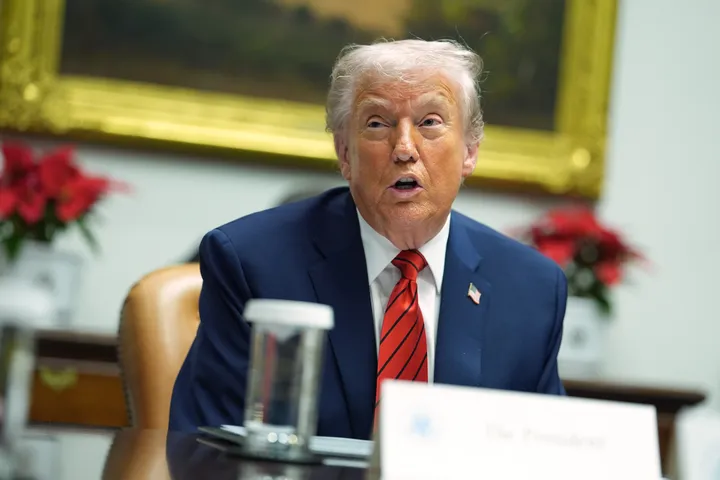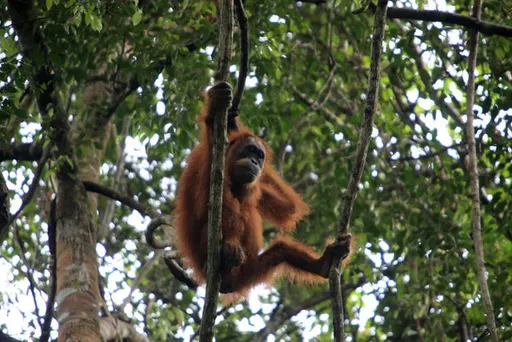On November 14, the International Criminal Court released the findings of a preliminary investigation into possible war crimes committed by the US in Afghanistan.
The report found "reasonable basis" that war crimes against Afghan nationals could have been committed in Afghanistan, as well as on Lithuanian, Polish and Romanian soil. All of the countries are signatories to the ICC.
The court says their decision on whether to pursue the charges is imminent. Yet there are doubts about the likelihood and effectiveness of an investigation.
The US is not a party to the 2002 Rome Statute which led to the establishment of the ICC. Washington also argues that its own courts have done a good enough job at prosecuting such allegations of abuses in foreign countries.
Afghanistan itself is heavily reliant on foreign aid, especially from the US. Since 2001, the US has provided more than $113 billion in security and humanitarian assistance.
This has led to a fear that Kabul would not risk upsetting its primary ally by cooperating with the ICC.
When did the ICC investigations begin?
Afghanistan first joined the ICC in 2003. Since then the country itself has never referred any cases to the court. However, the ICC has been conducting preliminary investigations into potential crimes in the country since 2007.
These were largely based on reports by non-governmental organisations, and investigations conducted by foreign governments into war crimes in Afghanistan.
This year's report marks the first time the ICC has singled out the "US armed forces and CIA," rather than the more encompassing "international forces" and "pro-government forces" used in the past.
What sorts of crimes has the ICC accused the US of?
The US military is accused of the ill-treatment and torture of at least 61 detainees in Afghanistan between May 1, 2003, and December 31, 2014. The CIA is accused of torturing and raping at least 27 other detainees in Afghanistan and in secret detention facilities in Europe between 2002 and 2008.
The court says the alleged crimes were "committed with particular cruelty and in a manner that debased the basic human dignity of the victims." The majority of these offences took place between 2003 and 2004.
The ICC allegations are in line with a 2014 report by the Senate Intelligence Committee. That report, though highly redacted, detailed the selection of secret CIA-run prisons in foreign countries, so-called "black sites." It also referred to the "brutal" interrogation tactics employed by the agency.
The Senate report came a week after the ICC issued its own 2014 report that they were looking into: "alleged torture or ill-treatment of conflict-related detainees by US armed forces in Afghanistan in the period [between] 2003-2008."
Is any of this even possible if the US doesn't recognise the ICC?
In the past, Washington has maintained that the ICC "should not have jurisdiction over non-parties," including the US.
This would be true if the alleged crimes had been conducted on US soil. Therefore, the ICC argues that they have jurisdiction over possible crimes committed on Afghan territory.
Ehsan Qaane, an analyst at the Afghanistan Analyst Network, a Kabul-based think tank, said this means that "the nationality of the perpetrator" cannot be used to exempt them from prosecution for alleged crimes committed in countries that are party to the ICC.
If the investigations lead to a trial, the ICC would be the first international tribunal to prosecute US nationals.
Does Kabul or Washington have to cooperate with the investigation?
Neither Washington nor Kabul is obliged to comply. Failure to do so would be a blow to both nations.
If Afghanistan fails to co-operate, the ICC can still carry on with its investigation based on the premise that the Afghan courts have not done enough to deal with the alleged crimes. It would be seen as a contradiction to Kabul's constant claims of a commitment to human rights.
Laura Pitter, a senior national security counsel at Human Rights Watch, said Washington is within its rights to refuse to comply. However, she said, doing so would "undermine the credibility of the United States" - especially in terms of the promotion of human rights and democracy.
The question of credibility is especially pertinent given the ICC's finding that the torture and abuse were "committed in furtherance of a policy or policies aimed at eliciting information through the use of interrogation techniques involving cruel or violent methods which would support US objectives in the conflict in Afghanistan."
The US could show good faith, and potentially avoid an ICC investigation, by prosecuting their service members allegedly involved in these crimes themselves, said Pitter.
For its part, Washington maintains that its courts have thoroughly investigated any alleged abuses in Afghanistan. Previous trials of US abuses in Afghanistan have, however, left Afghans angry and disappointed at the outcomes.
Ultimately, Pitter said it does not matter whether it is a national or an international court which tries US service members suspected of war crimes: "What matters is that there is some sort of due process and that people are held to account."
How have past war crimes been handled?
In 2013, a US military court convicted Staff Sergeant Robert Bales to life in prison for the March 2012 killings of 16 civilians, including nine children, in the southern province of Kandahar.
In October 2015, the US conducted a series of airstrikes on a Doctors Without Borders (MSF) clinic in Kunduz. At least 42 civilians, including medical staff, were killed as a result.
US officials called the bombings a "mistake." Washington's investigation would go on to say that the destruction of the MSF facility was the result of human error and equipment failures.
In April 2016, the US concluded that the MSF airstrike did not constitute a war crime. Twelve members of the US military were disciplined. None were fired.
US President Barack Obama eventually issued a rare apology to the head of MSF.
Though the US made more than $5.7 million in payments to the families of the killed and injured, Kunduz residents insist it's not enough.
Didn't Afghanistan sign an agreement not to prosecute US forces?
Kabul signed a Bilateral Security Agreement (BSA) with Washington on September 30, 2014. The pact stipulated the conditions for any remaining US military forces in the nation.
Per the accord, Kabul would not prosecute US forces or hand them over to a third party for any crimes committed in Afghanistan.
According to Qaane, Kabul is bound to comply with the BSA and cannot hand over any US nationals accused of war crimes to the ICC."
However, even if Kabul refuses to co-operate with the ICC, the court can still apply its own jurisdiction over Afghanistan as a signatory to the Rome Statute to pursue the cases.
Known as the "court of last resort," the ICC can invoke propio moto, Latin for "own initiative," to try the cases.
Author: Ali Topchi and Ali M Latifi
























